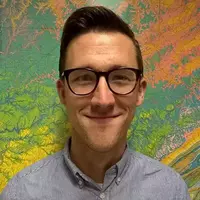Course Design: Using effective lesson design strategies to enhance the use of active learning
This workshop will address how to approach course design in a manner that will maximize clarity and provide opportunities for all students to succeed. Participants will work collaboratively with workshop leaders and other participants to (re)design their own course (or course elements) using principles of backward design, active learning strategies and other practices that engage students in their learning process. Participants will leave the workshop with materials ready to use in their own upcoming courses.
All workshops will take place online, via Zoom (unless otherwise noted). Participants will be sent links to the Zoom room and connection info will be posted below prior to the session start.
Session Connection Info
This workshop has already taken place.
Supporting Documents
Reading for the Workshop (Acrobat (PDF) 113kB Jul15 20)
PowerPoint Slides for Day 1 (PowerPoint 2007 (.pptx) 1.5MB Jul16 20)
PDF Notes of Day 1 Slides (Acrobat (PDF) 1.3MB Jul16 20)
PowerPoint Slides for Day 2 (PowerPoint 2007 (.pptx) 1.5MB Jul17 20)
PDF Notes of Day 1 Slides (Acrobat (PDF) 2.3MB Jul17 20)
Blooms Verbs and Lesson Design Rubric Handout (Acrobat (PDF) 126kB Jul17 20)
Example Intro Physical Geology In-class Example (PowerPoint 2007 (.pptx) 2.6MB Jul17 20)
Overview
Effective course design is not only a matter of determining which topics to cover and how to explain them; to support students of all backgrounds, levels of prior knowledge and educational experiences, there are several strategies and techniques that can help "level the playing field" for students in your courses. For example, utilizing active learning strategies within STEM courses has been shown to result in improvements in student learning, contribute to increased retention rates, and reduce the achievement gap among different student populations. Additionally, there are other in-class teaching strategies an instructor can employ to help all students feel welcomed and valued in the classroom. For example, allowing for adequate wait time for students to formulate their thoughts after posing a question, incorporating culturally diverse and relevant examples of applications, and asking open-ended questions that allow for students to bring their own experiences to the table, all can contribute to a inclusive environment where students of diverse backgrounds can be made to feel welcome. Such activities can work to increase the level of inclusion a student feels in your course and are important to lay the groundwork for engagement and learning strategies.
After discussing how to generate an inclusive environment, we will describe how course design can be guided by a number of strategies to make the course goals and learning activities clear for both the instructor and the student. We will discuss how to utilize a concept called "backwards design" to help guide instructors in how they assess students and design activities to support learning. We will discuss how an instructor can unify all of the course activities by providing explicit and measurable course learning objectives (~100 per course/semester) to the students. Phrased as directives (e.g., I can explain how clastic sedimentary rocks are formed), these objectives serve as guides for students to monitor their progress in the course and can be aligned to all quiz questions, presentation slides, and assignments, and serve as the topics that inform the summative assessment items (i.e., exam questions). In effect, we will talk about how you can leverage conscientious course design elements to provide all students with a roadmap to success and allow them to work towards the destination of effective learning regardless of their individual starting point.
Audience
The target audience for this workshop is any instructor interested in (re)design a course at the college level. While geoscience will be the focus of many of the examples, participants need not teach geoscience to benefit from the principals discussed. Specifically, whether looking to develop a new course or redesign an existing course, participants will analyze the features of an inclusive classroom, use backwards design and principles of formative vs summative assessment strategies and the use of explicit learning goals/objectives to guide the student experience. All participants should bring course materials to build from/redesign as well as a laptop or similar device. We will work in a cooperative environment to develop collaborative spaces. This workshop is suited for all instructors, particularly those at 2Y and 4Y colleges, early-career faculty, and graduate students. Basically anyone interested in generating a clear, inclusive and effective learning environment!
Goals
By the end of this workshop, participants will be able to:
- explain the features of an inclusive college-level classroom
- write clear and measurable course objectives (macro-level) and learning objectives (micro-level) to guide students in their learning process during your course
- utilize effective strategies (e.g., backwards design) to design well-aligned planning, instruction and assessment activities for students to facilitate learning in your courses
Format
Each day will include an introduction to the topic(s) for the day, collaborative activities designed to provide participants opportunities for guided practice in applying key concepts, sharing of ideas about how to approach specific tasks, participants working on materials for their own classes, and a final opportunity for reflection about each morning's tasks...and more!


